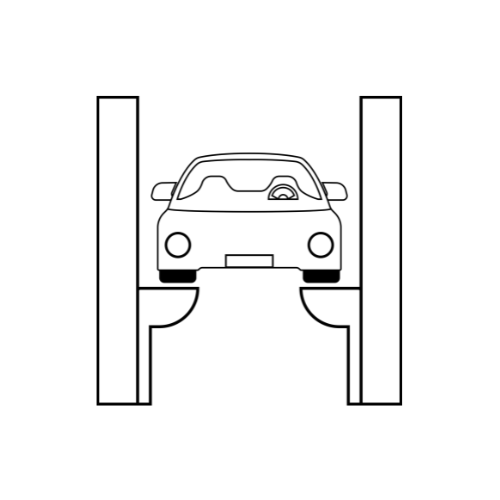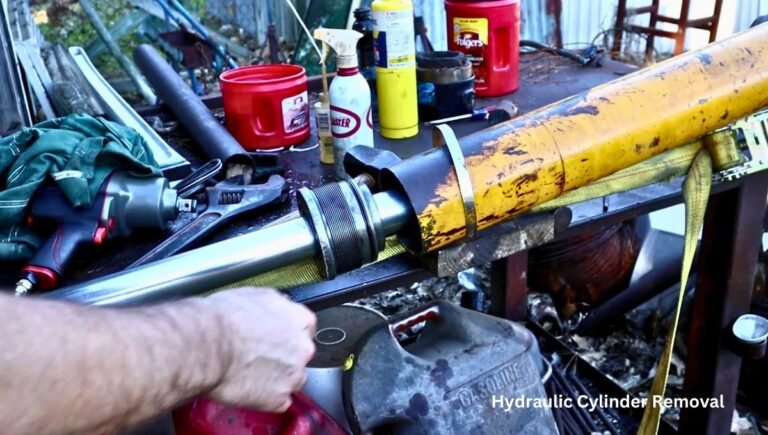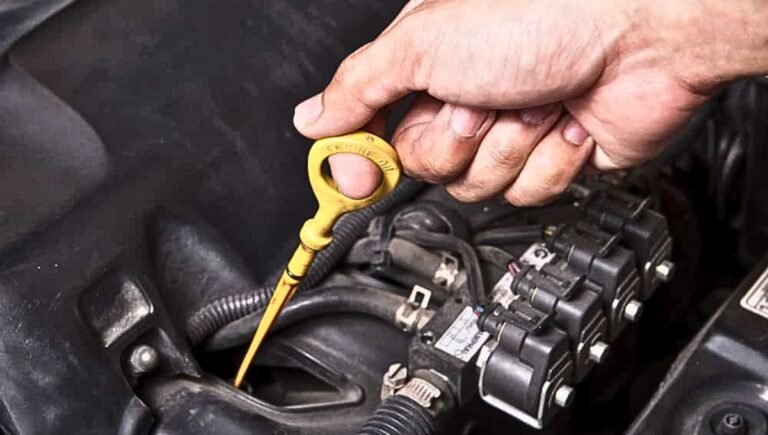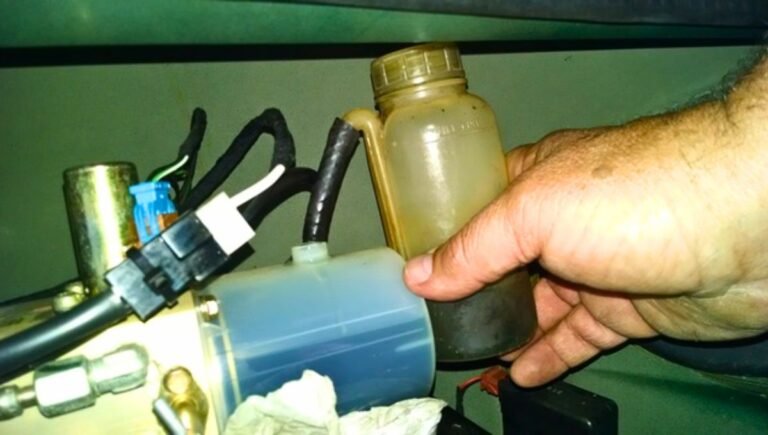Can I Use Transmission Fluid in a Hydraulic Jack? Ultimate Guide
No, you should not use transmission fluid in a hydraulic jack. It can cause damage and reduce efficiency.
Using the correct fluid in a hydraulic jack is crucial for its performance and longevity. Hydraulic jacks require specific hydraulic oil designed to withstand high pressure and provide proper lubrication. Transmission fluid lacks the necessary properties and can lead to malfunction or permanent damage.
Always refer to the manufacturer’s guidelines for the appropriate type of hydraulic oil. Maintaining your hydraulic jack with the right fluid ensures safe operation and extends its lifespan. Neglecting this can result in costly repairs or replacements. Proper maintenance is key to keeping your hydraulic equipment in top condition.
Introduction To Hydraulic Jack Fluid Requirements
Hydraulic jacks are essential tools for lifting heavy loads. They use fluid pressure to generate force. Understanding the fluid requirements is crucial for optimal performance.
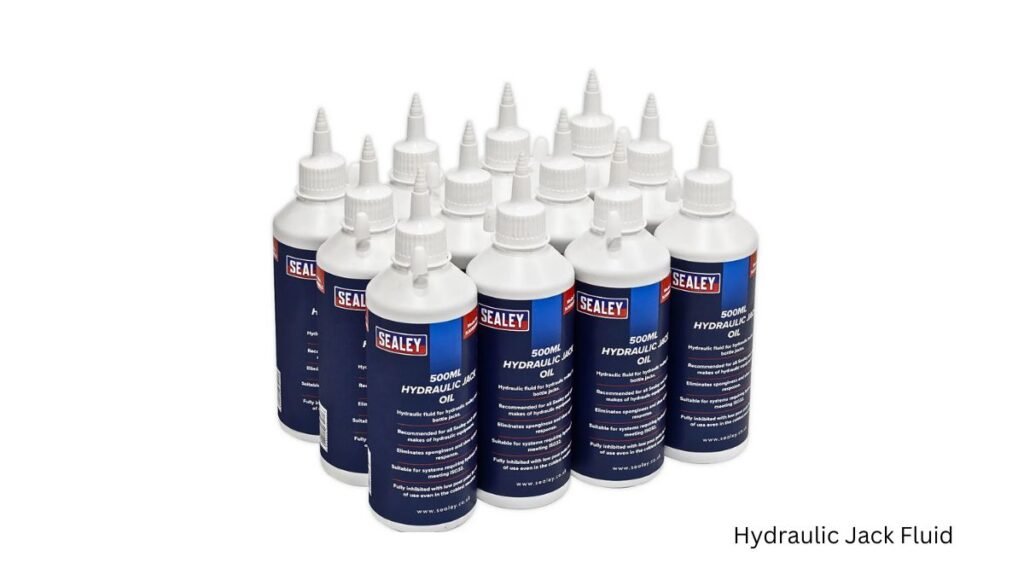
The Role Of Fluid In Hydraulic Jacks
The fluid in hydraulic jacks transfers force. This fluid converts mechanical energy into hydraulic energy. It ensures smooth and efficient operation.
Hydraulic fluid also lubricates the jack’s moving parts. This reduces wear and tear. Proper lubrication extends the jack’s lifespan.
Another important role is to prevent rust. The fluid keeps the internal components free from corrosion. This is vital for the jack’s longevity.
Qualities Of An Ideal Hydraulic Jack Fluid
An ideal hydraulic jack fluid should have specific qualities. These qualities ensure the jack functions properly. Here are the key qualities:
- Viscosity: The fluid should have the right thickness. It should flow easily but still be thick enough to lubricate.
- Lubrication: The fluid must provide excellent lubrication. This reduces friction and wear.
- Corrosion Resistance: The fluid should prevent rust and corrosion. This protects the jack’s internal parts.
- Thermal Stability: The fluid should perform well under different temperatures. This ensures consistent performance.
Using the wrong fluid can cause problems. It may lead to poor performance or damage to the jack. Always check the manufacturer’s recommendations for the correct fluid type.
Transmission Fluid Characteristics
When considering using transmission fluid in a hydraulic jack, understanding the Transmission Fluid Characteristics is essential. This section delves into the vital aspects of transmission fluid.
Composition Of Transmission Fluid
Transmission fluid is a blend of various components. These include:
- Base Oil: The primary component, providing lubrication.
- Additives: Enhance performance, reduce wear, and prevent corrosion.
- Detergents: Keep the system clean by removing deposits.
- Modifiers: Adjust the fluid’s properties for specific needs.
Properties Of Transmission Fluid
Transmission fluid has unique properties that make it suitable for specific tasks:
| Property | Details |
|---|---|
| Viscosity | Maintains a stable flow at varying temperatures. |
| Lubrication | Reduces friction and wear between moving parts. |
| Heat Resistance | Withstands high temperatures without breaking down. |
| Oxidation Stability | Resists chemical reactions that can degrade the fluid. |
| Anti-Wear | Protects components from damage during operation. |
These characteristics are crucial for the effective functioning of transmission systems and potentially for hydraulic jacks.
Comparing Hydraulic Fluid And Transmission Fluid
Choosing the right fluid for your hydraulic jack is crucial. Hydraulic fluid and transmission fluid have different properties. These properties impact their performance in hydraulic systems. Let’s compare them to understand their differences better.
Viscosity And Pressure Considerations
Viscosity refers to the thickness of the fluid. Hydraulic fluid has a specific viscosity suitable for jacks. Transmission fluid has a different viscosity. Using the wrong viscosity can affect performance.
Pressure is another factor. Hydraulic jacks need fluids that handle high pressure. Hydraulic fluid is designed for this. Transmission fluid may not meet the same pressure requirements.
| Property | Hydraulic Fluid | Transmission Fluid |
|---|---|---|
| Viscosity | Optimal for jacks | Different viscosity |
| Pressure Handling | High pressure | May not suffice |
Additives And Corrosion Resistance
Additives in fluids enhance their performance. Hydraulic fluid contains specific additives. These additives improve lubrication and reduce wear. Transmission fluid has different additives. They might not be suitable for hydraulic systems.
Corrosion resistance is vital for any hydraulic system. Hydraulic fluid includes corrosion inhibitors. These inhibitors protect the internal components. Transmission fluid may not offer the same level of protection.
- Hydraulic fluid has specialized additives.
- Transmission fluid additives differ.
- Hydraulic fluid prevents corrosion effectively.
- Transmission fluid may not protect against corrosion.
Potential Risks Of Using Transmission Fluid In Hydraulic Jacks
Using transmission fluid in hydraulic jacks can lead to several risks. These risks may affect the performance and longevity of your equipment. Understanding these risks can help you make better decisions.
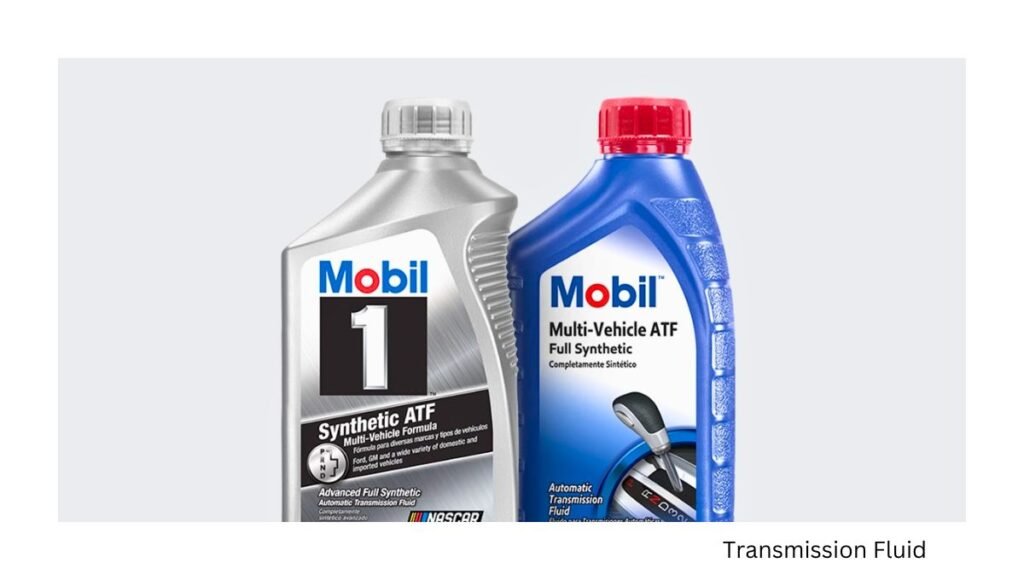
Compatibility Issues
Hydraulic jacks are designed for specific hydraulic fluids. Using transmission fluid can cause compatibility issues. Transmission fluid and hydraulic fluid have different properties. These differences can affect the performance of the hydraulic jack.
Transmission fluid may not provide the same lubrication as hydraulic fluid. This can lead to increased wear and tear on the internal components. It can also affect the efficiency of the hydraulic system.
Impact On Seals And Components
The seals in hydraulic jacks are made for hydraulic fluid. Transmission fluid can cause these seals to deteriorate. This can lead to leaks and reduced performance.
Transmission fluid can also affect other components. It may cause corrosion or degradation of metal parts. This can lead to failure of the hydraulic jack over time.
Using the wrong fluid can cause serious damage to your equipment. Always use the recommended hydraulic fluid for your hydraulic jack.
Expert Opinions On Fluid Substitution
When it comes to maintaining hydraulic jacks, using the correct fluid is crucial. Some wonder if transmission fluid can be a substitute. Expert opinions on fluid substitution can help us make informed decisions.
Mechanic Insights
Many experienced mechanics have shared their views on this matter. They agree that using transmission fluid in a hydraulic jack is not ideal. Hydraulic jacks require specific fluid properties. Transmission fluid lacks these properties, making it a poor choice.
Mechanics explain that transmission fluid can cause seal damage. This damage can lead to leaks and reduced performance. They also note that transmission fluid doesn’t have the right viscosity. This can affect the efficiency of the hydraulic jack.
Here are some common mechanic observations:
- Transmission fluid can cause corrosion in hydraulic systems.
- It does not provide adequate lubrication.
- It can reduce the lifespan of the hydraulic jack.
Manufacturer Recommendations
Manufacturers of hydraulic jacks provide specific guidelines for fluid use. They recommend using hydraulic jack oil only. This oil is formulated to meet the needs of the hydraulic system.
Manufacturers warn against using transmission fluid. They state that it can void warranties. They also note that transmission fluid does not have the right additives. These additives are necessary for optimal performance.
Here is a comparison table of fluid properties:
| Property | Hydraulic Jack Oil | Transmission Fluid |
|---|---|---|
| Viscosity | High | Low |
| Additives | Yes | No |
| Seal Compatibility | High | Low |
| Corrosion Protection | Yes | No |
Manufacturers emphasize that using the correct fluid ensures safety and efficiency. Following their recommendations can lead to better jack performance.
Proper Fluid Maintenance For Hydraulic Jacks
Proper fluid maintenance is crucial for the performance of hydraulic jacks. Using the right fluid ensures smooth operation and extends the lifespan of the jack.
Checking Fluid Levels
Regularly checking the fluid levels in your hydraulic jack is essential. Low fluid levels can lead to poor performance and potential damage.
- First, locate the fluid reservoir.
- Remove the plug to access the fluid.
- Use a dipstick to measure the fluid level.
- Ensure the fluid level is between the minimum and maximum marks.
Changing The Hydraulic Fluid
Changing the hydraulic fluid is necessary for maintaining efficiency. Follow these simple steps to change the fluid:
- Place the jack on a flat surface.
- Raise the jack to its highest position.
- Remove the drain plug to let out the old fluid.
- Once drained, replace the drain plug.
- Fill the reservoir with new hydraulic fluid.
- Check for leaks after filling.
Remember, always use the recommended hydraulic fluid. Transmission fluid is not a suitable substitute. Incorrect fluids can damage your jack.
Emergency Use Of Transmission Fluid In Hydraulic Jacks
You might wonder, can you use transmission fluid in a hydraulic jack? The answer is yes, but only in emergencies. Transmission fluid can temporarily replace hydraulic fluid in a pinch. Understanding the short-term solutions and long-term consequences is crucial.
Short-term Solutions
Transmission fluid can serve as a quick fix. It can help you complete a task when you’re out of hydraulic fluid. Here are some short-term benefits:
- Immediate availability
- Similar viscosity to hydraulic fluid
- Quick fix for minor issues
Using transmission fluid can help you get the job done fast. It ensures that your hydraulic jack remains operational. This can be crucial in urgent situations.
Long-term Consequences
While transmission fluid works short-term, it has long-term drawbacks. Here are some negative effects to consider:
- Potential damage to seals and components
- Reduced efficiency over time
- Possible contamination of the hydraulic system
Using transmission fluid may cause wear and tear. It can also lead to higher repair costs. Over time, these issues can become significant.
Let’s look at the impact in a table:
| Aspect | Transmission Fluid | Hydraulic Fluid |
|---|---|---|
| Viscosity | Similar | Optimal |
| Compatibility | Limited | High |
| Longevity | Short-term | Long-term |
Always use hydraulic fluid for long-term use. It ensures the best performance and longevity of your hydraulic jack.
Alternatives To Transmission Fluid For Hydraulic Jacks
Hydraulic jacks require the right fluid for proper function. Using the wrong fluid can damage the jack. While transmission fluid is sometimes used, there are better alternatives. Let’s explore some of these options under the following categories.
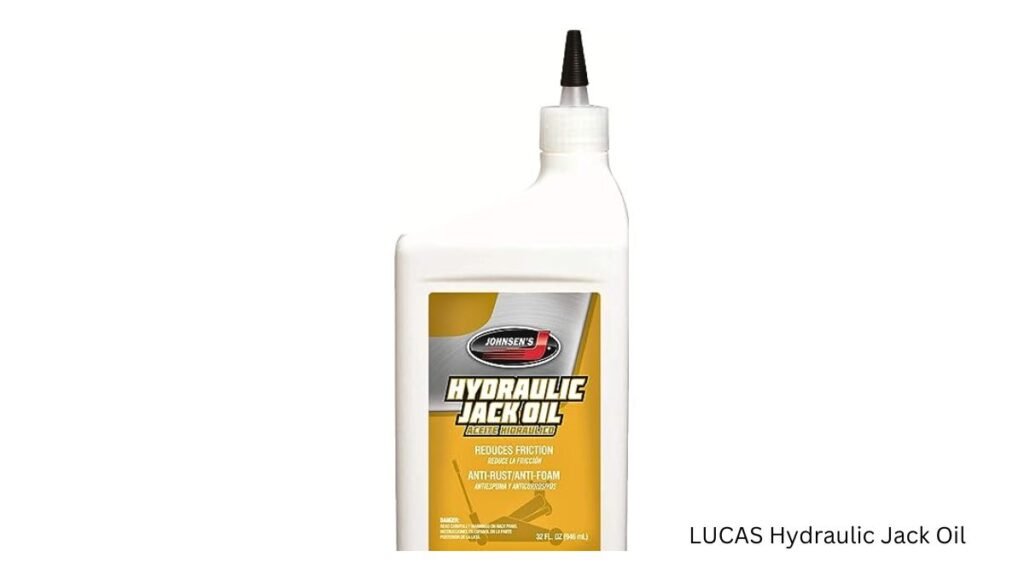
Commercial Hydraulic Jack Fluids
Commercial hydraulic jack fluids are specially made for jacks. These fluids offer the best performance and protection. They reduce wear and tear and ensure smooth operation. Here are some popular brands:
- LUCAS Oil Hydraulic Jack Oil: Known for its anti-rust properties.
- STP Hydraulic Jack Oil: Offers excellent viscosity and stability.
- BlueDevil Hydraulic Jack Oil: Prevents foaming and rust.
These commercial fluids are easy to find. They come with instructions for use. Always follow the manufacturer’s guidelines for the best results.
Diy Fluid Mixtures
Some people prefer making their own hydraulic jack fluid. This can be cost-effective but requires care. Here are some common DIY mixtures:
| Ingredients | Benefits | Precautions |
|---|---|---|
| ATF (Automatic Transmission Fluid) + Motor Oil | Easy to find and mix | Avoid using in cold temperatures |
| Vegetable Oil + Alcohol | Eco-friendly and non-toxic | May not work well under high pressure |
| Baby Oil + Mineral Oil | Cost-effective and available | Check for compatibility with seals |
These DIY mixtures can work in a pinch. But they may not offer the same protection as commercial fluids. Always test a small amount first. Ensure it does not damage the jack.
Best Practices For Hydraulic Jack Maintenance
Regular maintenance of hydraulic jacks ensures optimal performance and longevity. Using transmission fluid in a hydraulic jack is not recommended. Opt for hydraulic oil specifically designed for jacks to maintain efficiency and safety.
Maintaining a hydraulic jack ensures it works safely and effectively. Following best practices helps extend its life and performance.
Summarizing The Do’s And Don’ts
- Do: Use the correct hydraulic fluid specified by the manufacturer.
- Do: Regularly check fluid levels and top off as needed.
- Do: Inspect the jack for leaks and wear.
- Do: Clean the jack after each use to prevent dirt buildup.
- Don’t: Use transmission fluid in place of hydraulic fluid.
- Don’t: Overload the jack beyond its rated capacity.
- Don’t: Ignore unusual noises or jerky movements during operation.
Final Thoughts On Fluid Usage
Using the right fluid is essential for your hydraulic jack. Transmission fluid is not a suitable substitute. It can cause damage to the seals and internal components. Always follow the manufacturer’s guidelines for fluid types.
| Fluid Type | Purpose |
|---|---|
| Hydraulic Fluid | Lubricates, seals, and transfers power |
| Transmission Fluid | Designed for transmissions, not hydraulic systems |
Using the correct fluid ensures the jack operates smoothly and safely. Misusing fluids can lead to malfunction or failure. Always prioritize safety and follow recommended maintenance practices.
“`
Can I Use Transmission Fluid In A Hydraulic Jack?
Yes, you can use transmission fluid in a hydraulic jack. However, it is not recommended for long-term use. Transmission fluid may not provide the same performance as hydraulic oil.
What Type Of Fluid For A Hydraulic Jack?
Hydraulic jacks typically use hydraulic oil. This fluid is specifically designed to provide optimal performance and protection. Always check the manufacturer’s recommendations for the correct fluid type.
Is Hydraulic Oil The Same As Transmission Fluid?
No, hydraulic oil and transmission fluid are not the same. Hydraulic oil is designed for hydraulic systems, while transmission fluid is formulated for transmissions. Using the correct fluid is crucial for proper function.
What Happens If You Use The Wrong Fluid?
Using the wrong fluid can lead to poor performance and potential damage. Hydraulic jacks may not lift properly or could fail. Always use the recommended fluid for best results.
Conclusion
Using transmission fluid in a hydraulic jack is possible but not recommended. It may affect performance and safety. Always consult the manufacturer’s guidelines before using alternative fluids. Proper maintenance and using the right hydraulic fluid ensure your jack works efficiently.
Prioritize safety and follow expert advice for optimal results.
